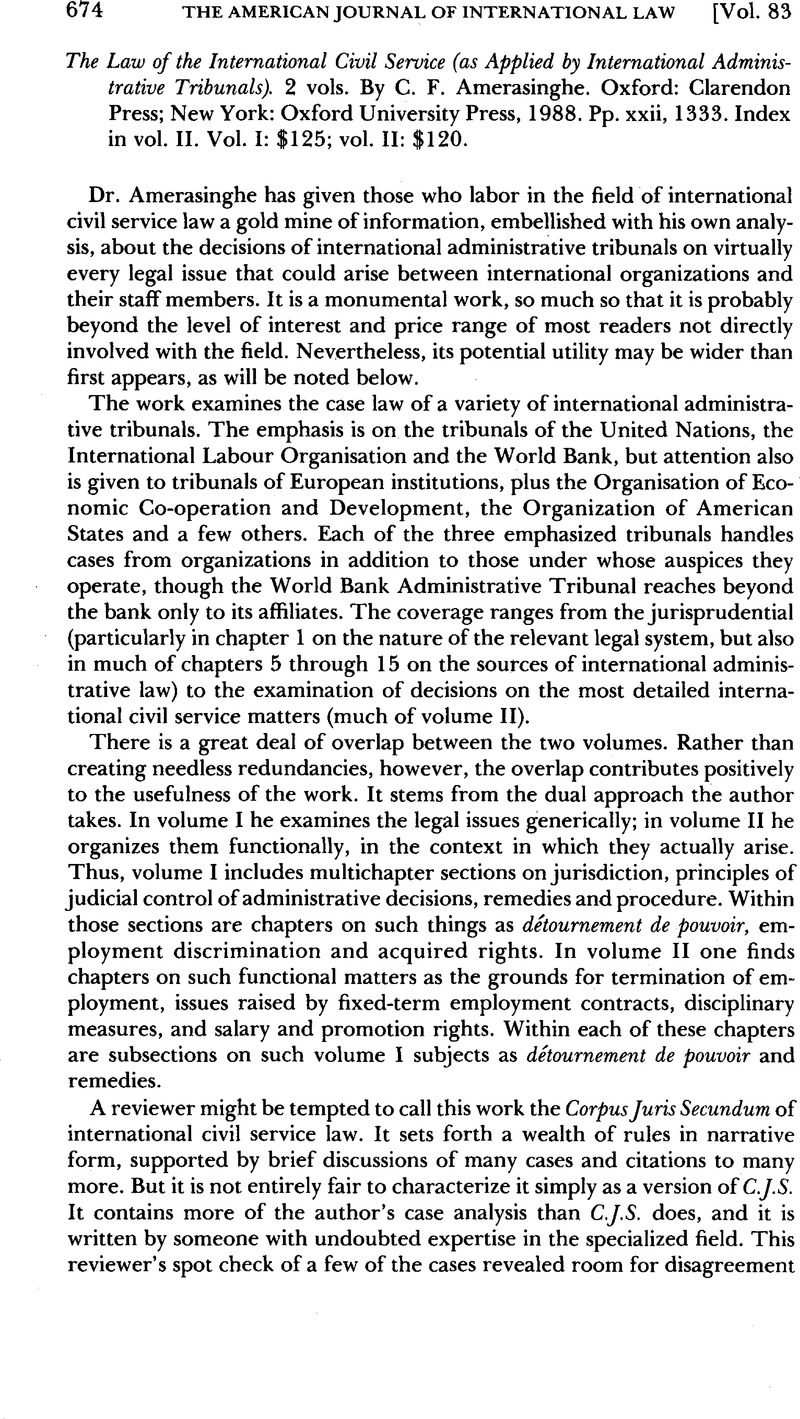No CrossRef data available.
Published online by Cambridge University Press: 27 February 2017

1 For example, in volume I at pages 140–41, 155, 263 and 313–14, the author discusses the Mullan case, Judgements UN Admin. Trib. No. 162, at 387, UN Doc. AT/DEC/162 (1972). Amerasinghe attributes to the tribunal the view that staff regulations and rules cannot be overridden even if they conflict with the UN Charter. The case could as felicitously be read, however, to hold only that the remedy sought by the applicant in response to a discriminatory staff rule was improper.
2 As the author warns, however, the case law of one administrative tribunal will not necessarily be followed by another. Nevertheless, at pages 195–97 he cites some instances of cross-citation between tribunals.
3 The list is rather long. It includes such principles as those requiring the giving of reasons for nonrenewal of civil service employment contracts (p. 377), nonretroactivity of adverse amendments to employment rules (pp. 405–06), the requirement that the governing body follow its own employment rules once it has promulgated them (pp. 928–29, 933–34, 962–63) and various principles relating to freedom of association (pp. 981–84, 987–88, 996, 1001–03).